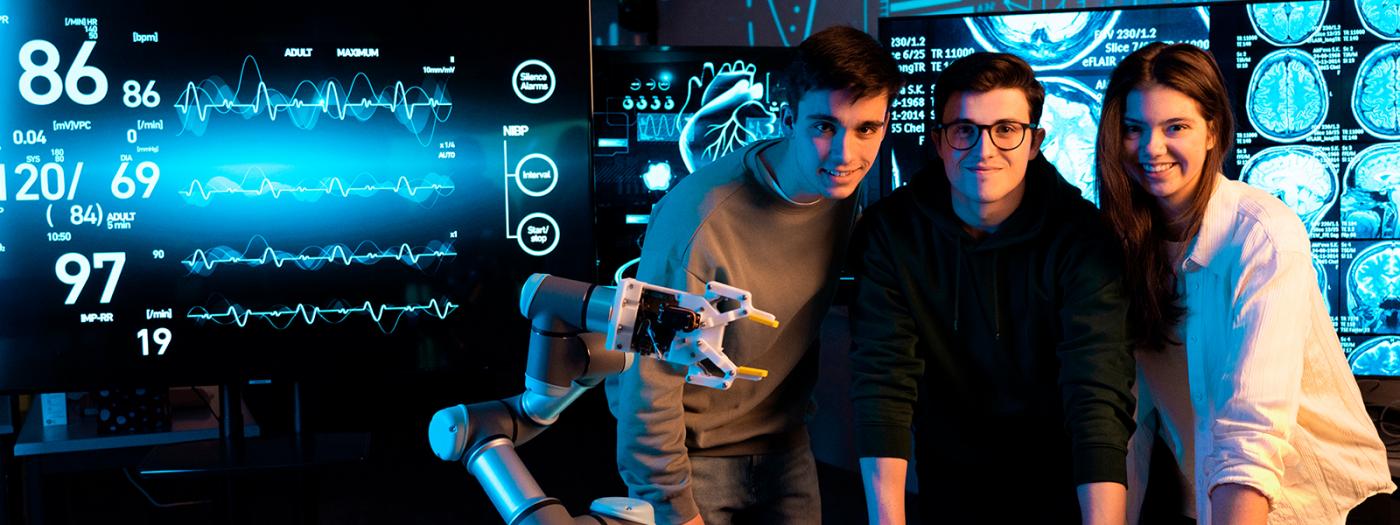The productive environment to which graduates of our Degree in Health Engineering will have access has great potential. On the one hand, the medical technology subsector is one of the most promising. So much so that risk capital and foreign investment managers are increasingly betting on the biomedical sector [1]. And this is a global trend: biotechnology moved 5,489 million euros to Europe in the first quarter of 2020, and 4,811 million euros in the second quarter. In total, 10,300 million euros, 9.5% more than the previous year [2].
In Catalonia, the number of companies in the Life Sciences and Health sector has multiplied by 10 in the last 10 years, while investment in these companies has tripled, from 5.1 million euros in 2016 to 18.8 million euros in 2019 [3]. These companies employ around 55,000 professionals, with companies in the digital health subsector experiencing the strongest growth. In addition, these are companies with a strong technological component, since one in four digital health companies uses technologies such as artificial intelligence, virtual reality, big data, augmented reality and 3D printing.
Finally, it should be noted that the coronavirus pandemic will further increase the demand for professionals in two sectors that were already in high demand in the job market: healthcare and engineering [4]. Thus, Medical and Health Engineering is one of the fastest growing branches of engineering.
The new degree trains students in technologies related to telecommunications, electronics and informatics applied to the improvement of health and disease process management. Everything is worked within the healthcare circuit, designing new hardware and software devices to improve the well-being of the patient and their environment, facilitating the task of doctors, caregivers, nurses, family, and the management of health centers.
Therefore, its graduates will be able to work in universities and hospitals, in industry, in the research facilities of educational and medical institutions, in teaching and in regulatory agencies. The degree has a wide range of career opportunities including:
- Companies that work towards diagnosis equipment, monitoring and medical therapy.
- Companies providing technology-based health services.
- Companies that work towards systems based on information and communication technologies for clinical, hospital and telemedicine processes.
- Companies that process biomedical signals and images for diagnosis and monitoring, decision support systems based on data mining, artificial intelligence and machine learning.
- Pharmaceutical and biotechnology companies.
